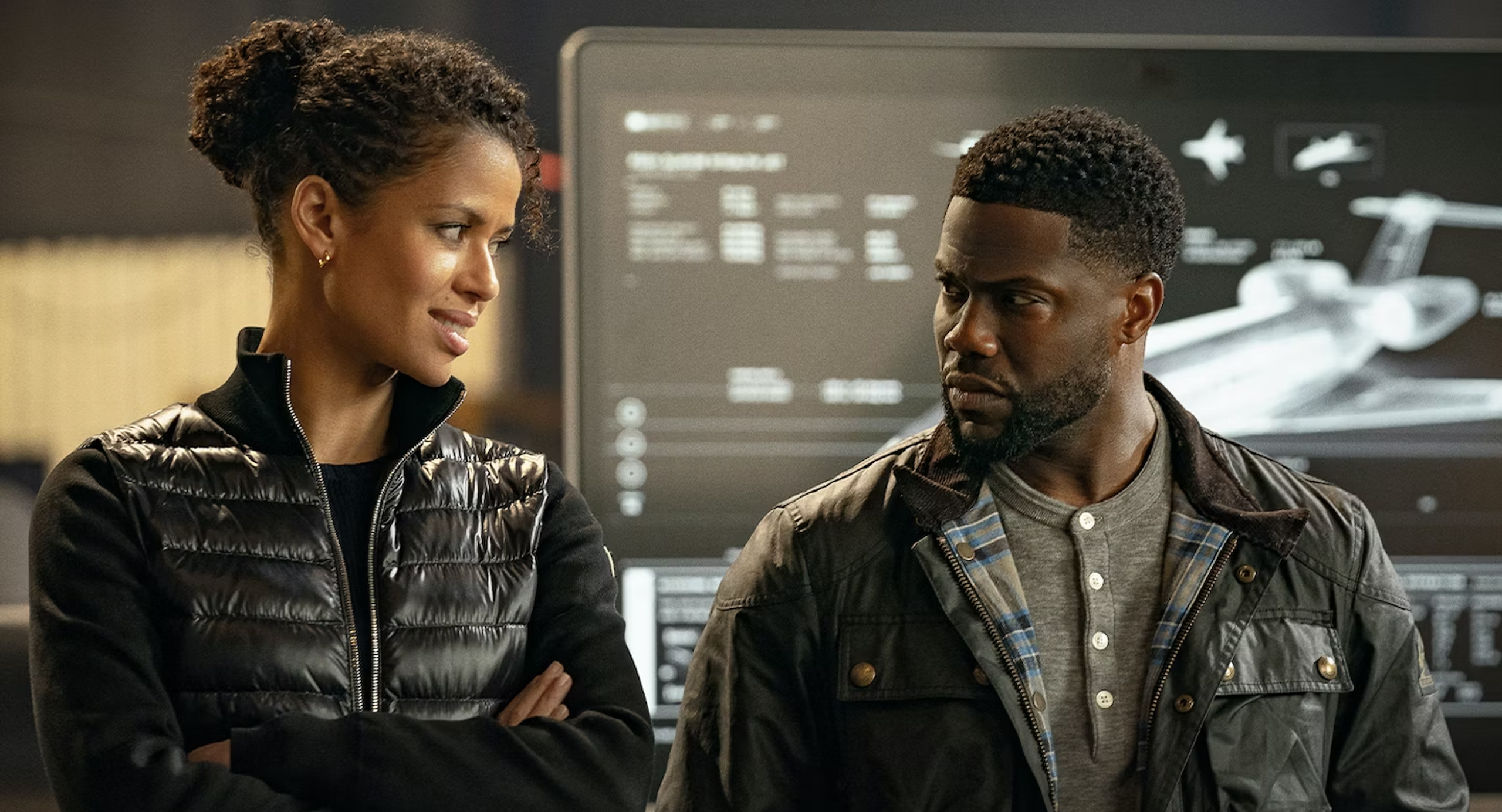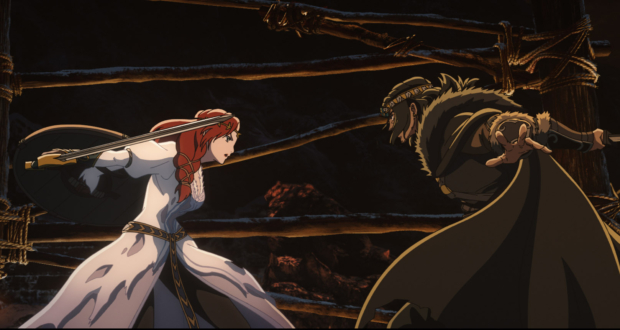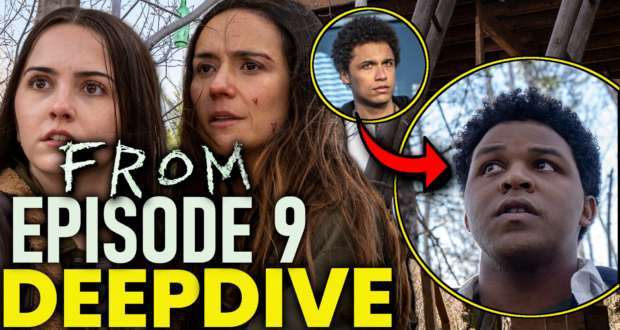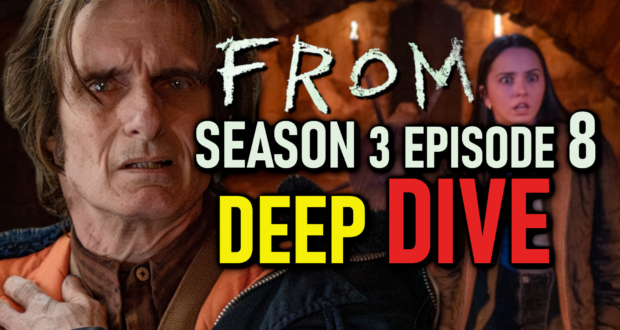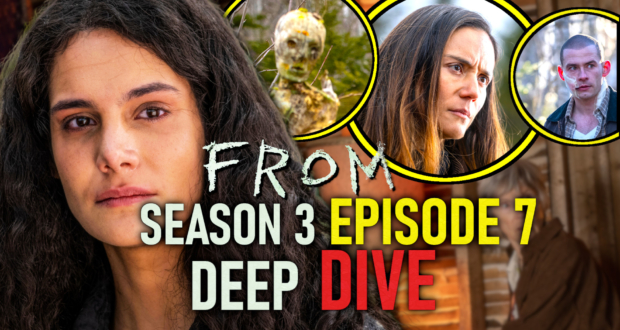Thank you, Makers of Mischief, we are back with our first recap of our favorite “I’m not a Liar” show Loki Season 2 Episode 1. I will do my best to guide you in this Marvelous show as we’re actually picking up where Season 2 ended so let’s dive in! This episode is titled “Ouroboros” which is a very which is a very fitting title as the episode takes time to introduce us to Ke Huy Quan’s character Ouroboros, or OB for short, but it also hints at things to come when you understand the origin of the word. “Ouroboros” is a captivating concept often depicted as a symbol or image of a serpent or dragon eating its own tail. This ancient symbol has roots in various mythologies and cultures, including ancient Egyptian, Norse, and Greek traditions. It represents the cyclical nature of life, death, and rebirth, as well as the infinite and eternal cycle of existence. The Ouroboros is a powerful metaphor for self-renewal, transformation, and the idea that endings are inherently linked to new beginnings. It has been used in art, literature, and philosophy to explore themes of time, eternity, and the never-ending cycle of change.
In the context of “Loki” Season 2, the title “Ouroboros” hints at intriguing possibilities. Given the time-traveling and multiverse aspects introduced in the first season, it’s conceivable that the show will continue to explore the cyclical nature of time and the consequences of alternate realities. The Ouroboros symbolize the interconnectedness of past, present, and future, which aligns with the show’s themes of time manipulation and branching timelines. It could signify the ever-repeating patterns and challenges that Loki, as a character, faces, and how he must navigate these cycles of change and self-discovery. “Ouroboros” may also imply that the show is diving deeper into the fundamental nature of the Marvel Cinematic Universe itself, examining the cyclical and infinite storytelling possibilities that come with a multiverse concept. Fans can anticipate a season filled with mind-bending twists, where the past and future are inexorably linked in the serpent’s eternal embrace.
“Loki” Season 2 picks up in the aftermath of the shocking season finale when Loki finds himself in a battle for the soul of the Time Variance Authority. Along with Mobius, Hunter B-15 and a team of new and returning characters, Loki navigates an ever-expanding and increasingly dangerous multiverse in search of Sylvie, Judge Renslayer, Miss Minutes and the truth of what it means to possess free will and glorious purpose.
In Marvel Studios’ “Loki,” the mercurial villain Loki (Tom Hiddleston) resumes his role as the God of Mischief in a series that takes place after the events of “Avengers: Endgame.” The starting point is the moment in “Avengers: Endgame” when the 2012 Loki takes the Tesseract. From there Loki lands in the hands of the Time Variance Authority (TVA), which is outside of the timeline, concurrent to the current day Marvel Cinematic Universe. In his cross-timeline journey, Loki finds himself a fish out of water as he tries to navigate—and manipulate—his way through the bureaucratic nightmare that is the Time Variance Authority and its by-the-numbers mentality.
The Good:
Continuity and Pacing: The episode seamlessly picks up where Season 1 left off, reminding viewers of the critical events with a concise recap. The pacing is brisk, keeping the audience engaged from the very beginning.
Character Development: The interactions between Loki, Mobius, and B-15 provide insight into their characters. Loki’s shock at being unrecognized and Mobius’ dedication to his mission add depth to their personalities.
Time Travel Mechanics: The episode introduces intriguing time travel mechanics within the TVA, adding complexity to the narrative. The concept of “time-slipping” and its impact on the timeline are well-executed and make for engaging storytelling.
World-Building: We learn more about the TVA’s inner workings and the consequences of Sylvie’s actions, enhancing the world-building of the series. The inclusion of Broxton, Oklahoma, adds a fascinating nod to the comics.
The Bad:
Character Absences: While the episode delivers on many fronts, it leaves viewers eager for the appearance of Jonathan Majors’ character, particularly after the tease in “Ant-Man and the Wasp: Quantumania.”
Miss Minutes’ Role: Miss Minutes’ involvement with He Who Remains at the end of time raises questions, but her exact role and motivations remain unclear, leaving the audience wanting more clarity.
Lack of Explanations: Some aspects, such as the specifics of He Who Remains’ control over the TVA and the reason behind Mobius and OB’s extended lifespans, could use further exploration and explanation.
In summary, “Loki” Season 2, Episode 1, sets the stage for an exciting narrative with strong character dynamics and intriguing time travel mechanics. However, viewers are left with questions and eager for the development of certain plot points. The episode successfully builds anticipation for what lies ahead in the season.
Loki Season 2 Episode 1 DEEP DIVE and REACTION
-
Acting - 8/10
8/10
-
Cinematography/Visual Effects - 8/10
8/10
-
Plot/Screenplay - 8/10
8/10
-
Setting/Theme - 8/10
8/10
-
Watchability - 9/10
9/10
-
Rewatchability - 8/10
8/10

